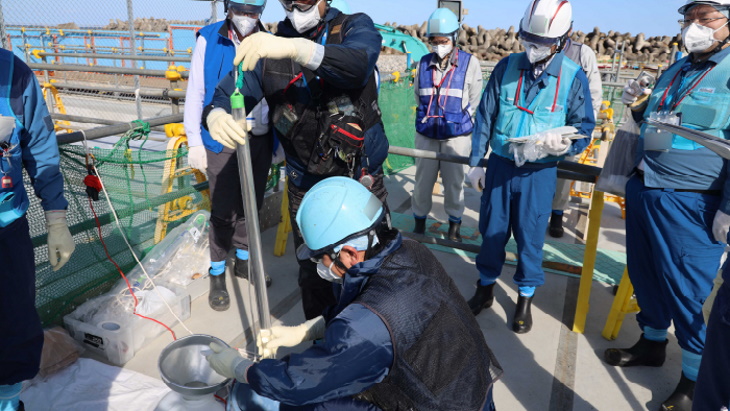At the Fukushima Daiichi site, contaminated water - in part used to cool melted nuclear fuel - is treated by the Advanced Liquid Processing System (ALPS), which removes most of the radioactive contamination, with the exception of tritium. This treated water is currently stored in tanks on site.
Japan announced in April 2021 it planned to discharge ALPS-treated water into the sea over a period of about 30 years. It started to discharge the water on 24 August last year and has so far completed the release of eight batches, a total of 62,400 cubic metres of water.
"As one of the most important stakeholders, China is firmly opposed to this irresponsible move," China's Ministry of Foreign Affairs said. "At the same time, China has urged Japan to seriously address concerns in and outside Japan, to earnestly fulfill its obligations, to give full cooperation in the establishment of an independent and effective long-term international monitoring arrangement in which stakeholders can participate substantively, and to accept independent sampling and monitoring by China."
Japan and China have now reached an agreement that allows stakeholders, including China, to conduct independent sampling, monitoring and inter-laboratory comparisons at key stages of the discharge process, which is currently being monitored by the International Atomic Energy Agency (IAEA).
"Taking into account the interests of all stakeholder countries, including China, Japan welcomes the expansion of long-term and international monitoring at key stages of the ocean release under the IAEA framework, and will ensure that all stakeholder countries, including China, effectively participate in this monitoring and that independent sampling and inter-laboratory comparisons are conducted by the participating countries," said Japan's Ministry of Foreign Affairs.
"China states that it has taken temporary emergency precautions against aquatic products of Japanese origin according to relevant Chinese laws and regulations and WTO rules," the Chinese ministry said. "After China participates substantively in the long-term international monitoring within the IAEA framework and the independent sampling and other monitoring activities by participating countries are carried out, China will begin to adjust the relevant measures based on scientific evidence and gradually resume imports of Japanese aquatic products that meet the regulation requirements and standards."
The agreement was welcomed by IAEA Director General Rafael Mariano Grossi, who said: "I wish to commend the government of Japan for its continued engagement with the IAEA, and the government of China for the constructive consultations held with the Agency in support of this bilateral process that comes to a positive conclusion today."
The agreement, Grossi said, "has built on our existing sampling and monitoring activities in compliance with the IAEA statutory functions". He said the IAEA will coordinate with Japan and other stakeholders, including China, to ensure that the additional measures are implemented appropriately under the framework of the IAEA, "maintaining the integrity of the process with full transparency to ensure that water discharge levels are, and will continue to be, in strict compliance and consistent with international safety standards".
Japan and China have agreed to "continue constructive dialogue from a scientific perspective, in a responsible manner towards the ecological environment and people's health, and to appropriately address concerns regarding the ocean release of ALPS-treated water."
IAEA experts stationed at the Fukushima Daiichi plant have taken samples from the batches of diluted water, after they were prepared for discharge. The IAEA's independent on-site analysis has confirmed that the tritium concentration in the diluted water that has so far been discharged is far below the operational limit of 1500 Bq/litre. The IAEA says it will have a presence on site for as long as the treated water is released.





_52351.jpg)


_15863.jpg)






